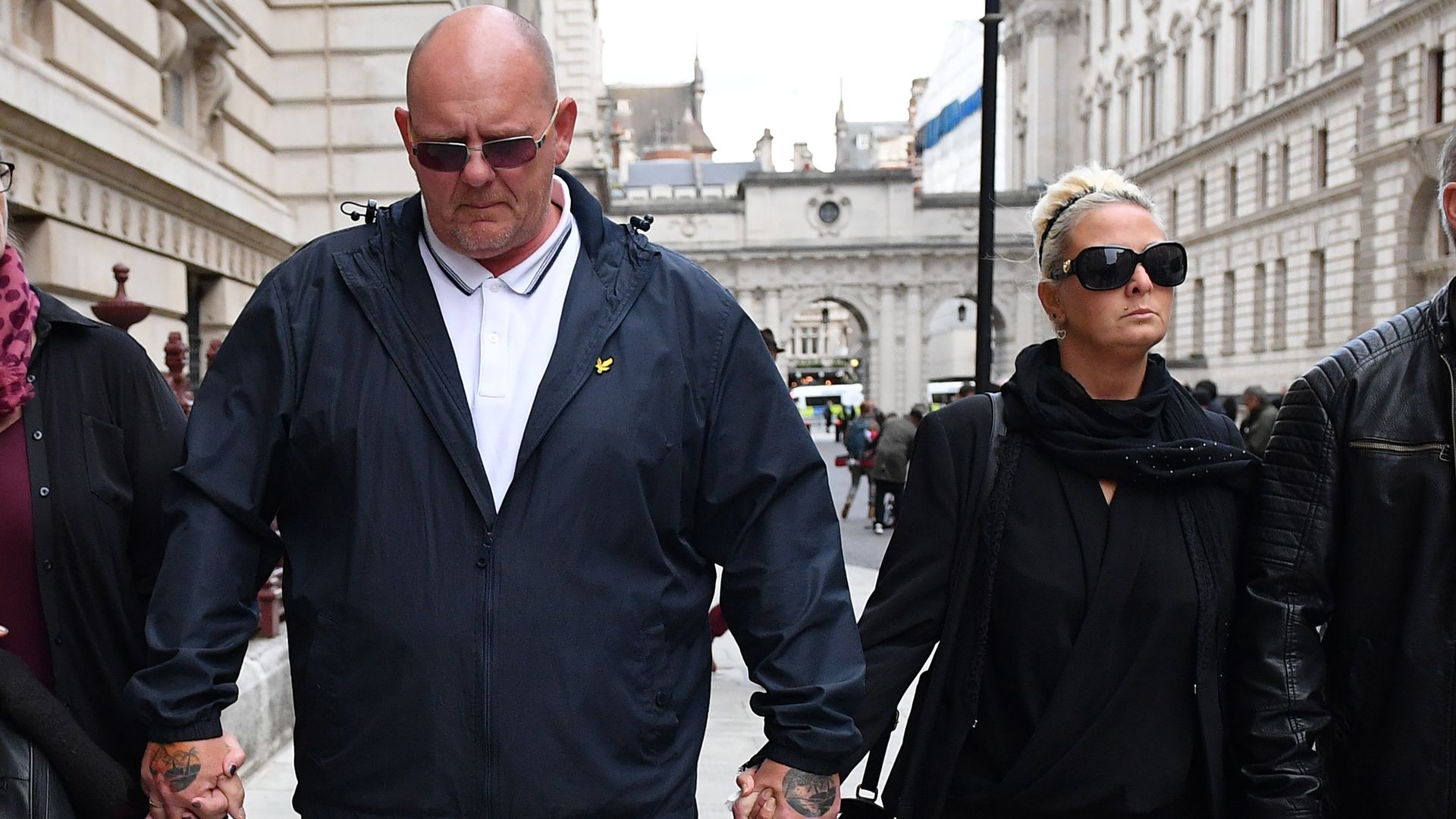Oct 16, 2019 - Politics & Policy
Harry Dunn's parents meet with Trump, decline to see suspect
Add Axios as your preferred source to
see more of our stories on Google.

Charlotte Charles and Tim Dunn, parents of Harry Dunn. Photo: Daniel Leal-Olivas/AFP via Getty Images
